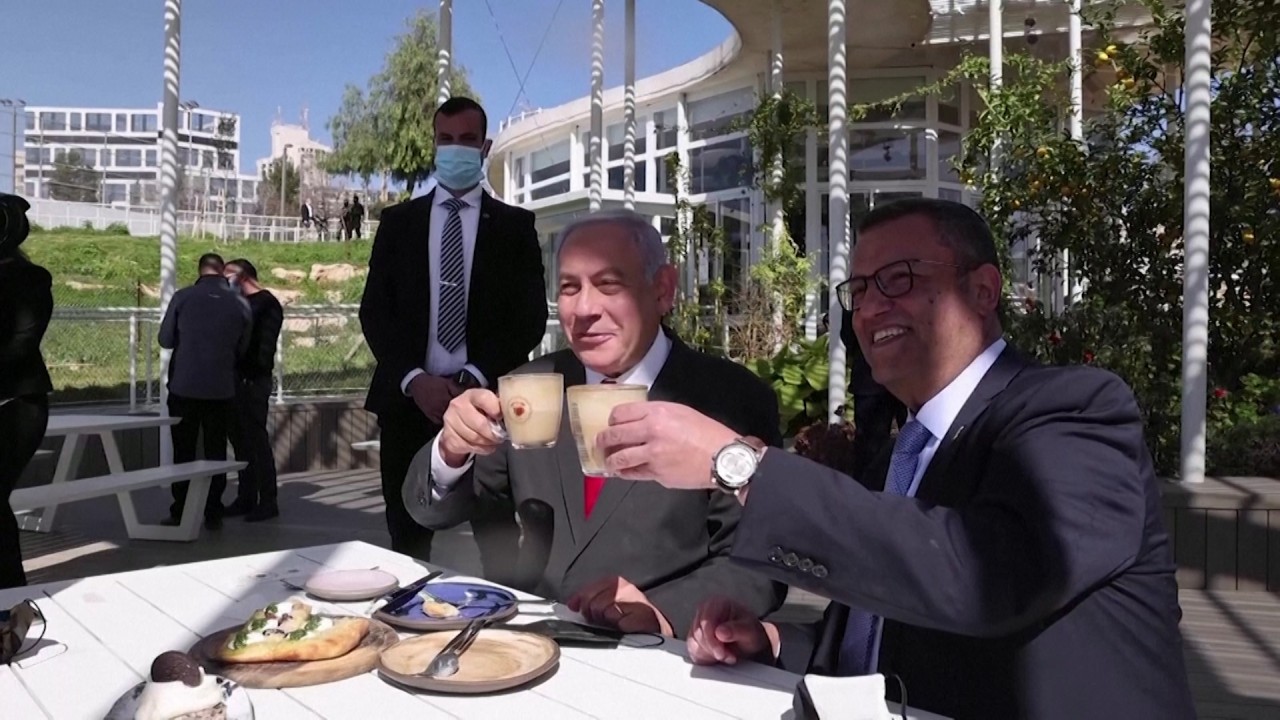
Mainland property buyers eye Tel Aviv amid Israel’s flourishing trade ties with China and Gulf peace deals
- The expansion of trade and business relations with China is helping drive interest in Israeli real estate as Chinese firms deploy executives to Tel Aviv
- Investors anticipate an uplift in property values as Arab states start to look for mansions and penthouses in Tel Aviv to house diplomatic missions, staff
Inquiries from China increased from nine in the fourth quarter of 2019 to 160 in the same period last year, according to the UK-based Beauchamp Estates, which has a presence in the Middle Eastern country.
Most of these inquiries were for ultra prime property markets in Tel Aviv’s popular districts and affluent beachfront neighbourhoods like Herzliya Pituach, the agency said, adding that there was also interest in commercial property and land for property development.
“Buyers from mainland China have been active in the Israeli market for more than a decade, but we have never seen such a sudden and meteoric increase in activity,” said Matthew Bortnick, director at Beauchamp Estates Tel Aviv.

Investors anticipate an uplift in rent and property values as Arab governments start to look for mansions and penthouses in Tel Aviv for use as diplomatic buildings and residences for ambassadors and diplomatic staff.
Beauchamp, which sold about US$25 million worth of property last year in Tel Aviv to Chinese and Hong Kong buyers, expects a 5 to 10 per cent sales growth this year, as it banks on dozens of clients from mainland China, Hong Kong and Singapore.
Chinese buyers typically spend between US$4 million and US$5 million for holiday homes, and between US$1 million and US$4 million for an apartment for rental investment or to sell later, Bortnick said.
“We have received applicant briefs for both sales and lettings from Chinese clients,” Bortnick said. “We have been helping one client, an owner of a venture capital firm, who is looking for a three-bedroom apartment in a luxury tower, with pool, porter and gym, in the Rothschild area with a budget of US$4 million to US$5 million.”
Between 2002 and 2020, there were 463 investment deals, mergers and acquisitions of Israeli companies by investors from mainland China and Hong Kong, according to Yoav Haimi, Israel’s commercial consul to Hong Kong.
In the tech sector, Chinese venture capital doubled from US$500 million in 2014 to US$1 billion in 2016. This includes Huawei Technologies’ acquisition of the Toga Networks in 2016 for about US$150 million, which has since become Huawei’s Israeli R&D centre.
Other Chinese companies such as Alibaba, Xiaomi and Lenovo also have R&D centres in Israel.
Tel Aviv is the only city in the Middle East and North African region named as one of the world’s leading tech lifestyle cities that are talent magnets but still offer better quality of life and air quality, according to a study released in December by property consultancy Savills.
“As a start-up powerhouse and a strategic gateway in the Middle East, Israel is an attractive investment destination for China,” Haimi said.


